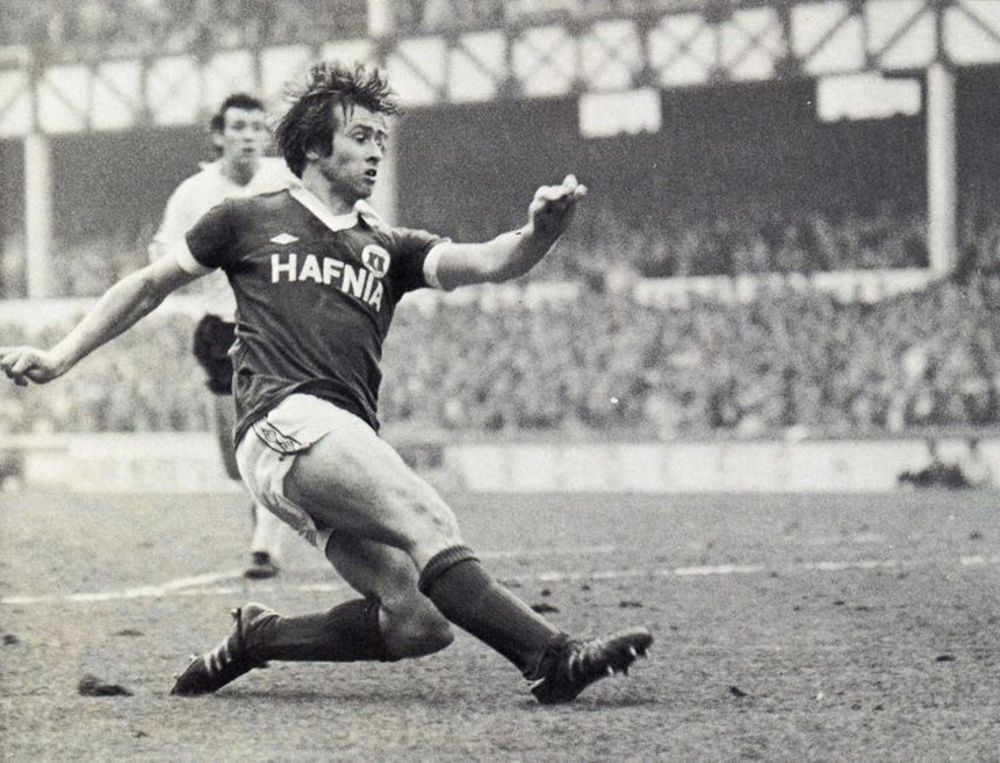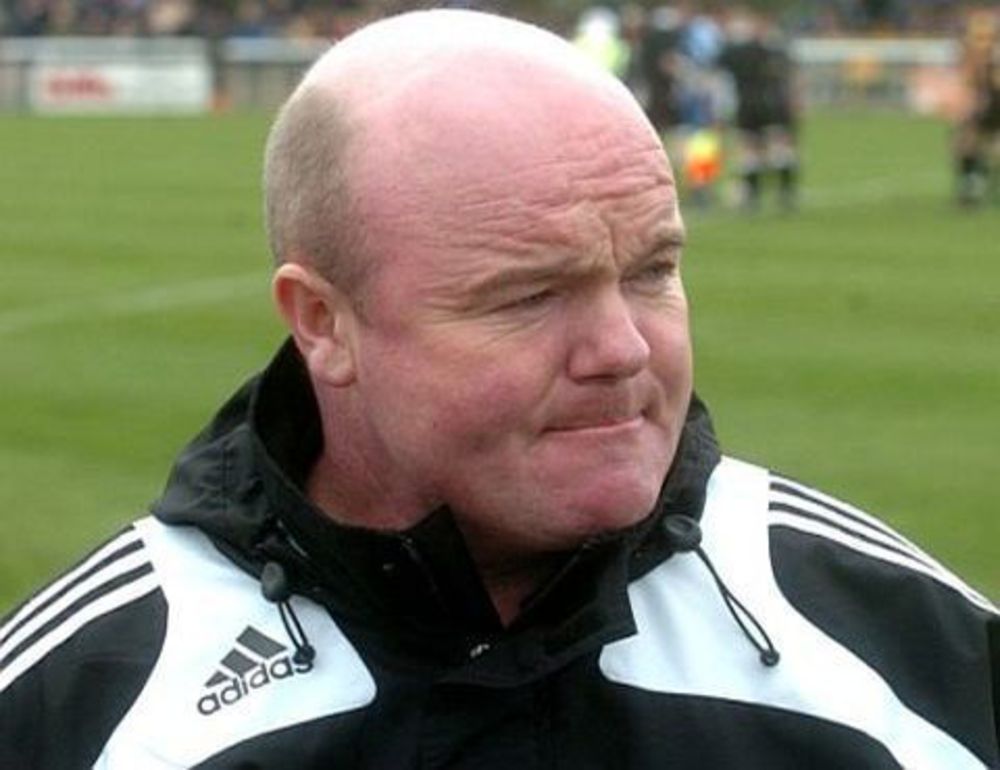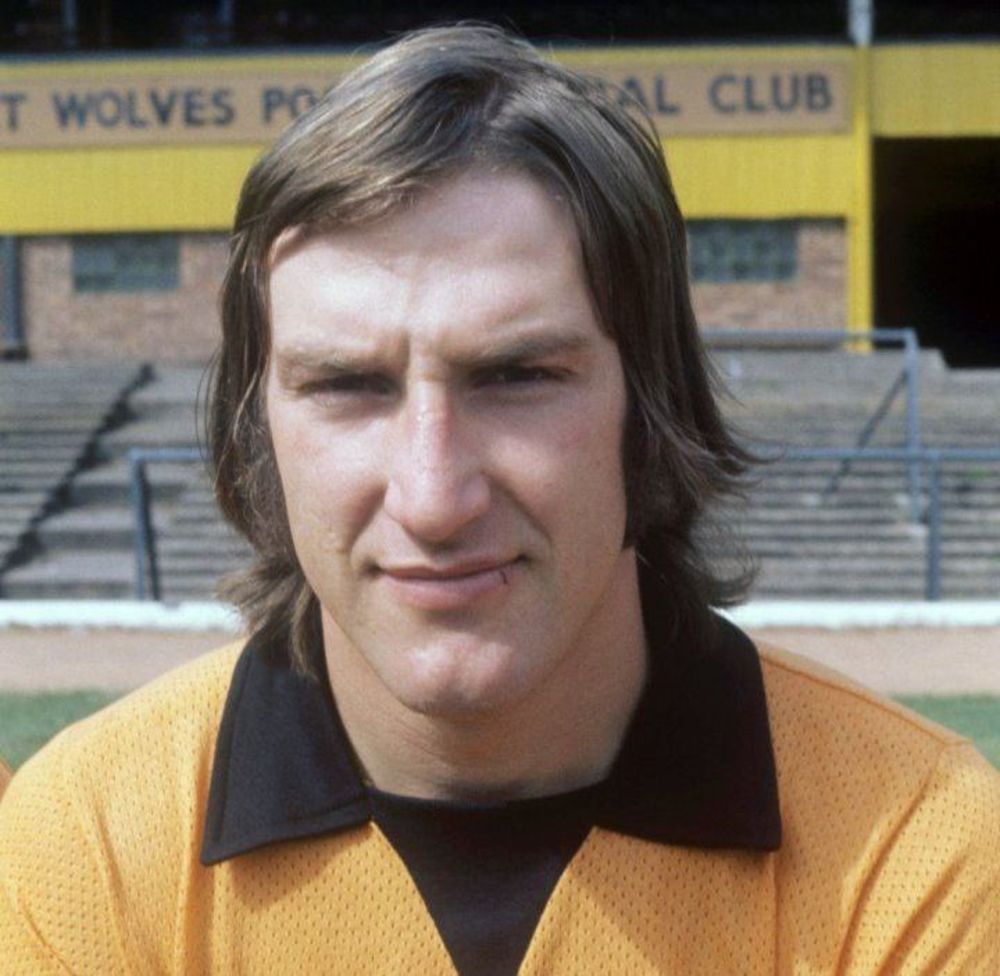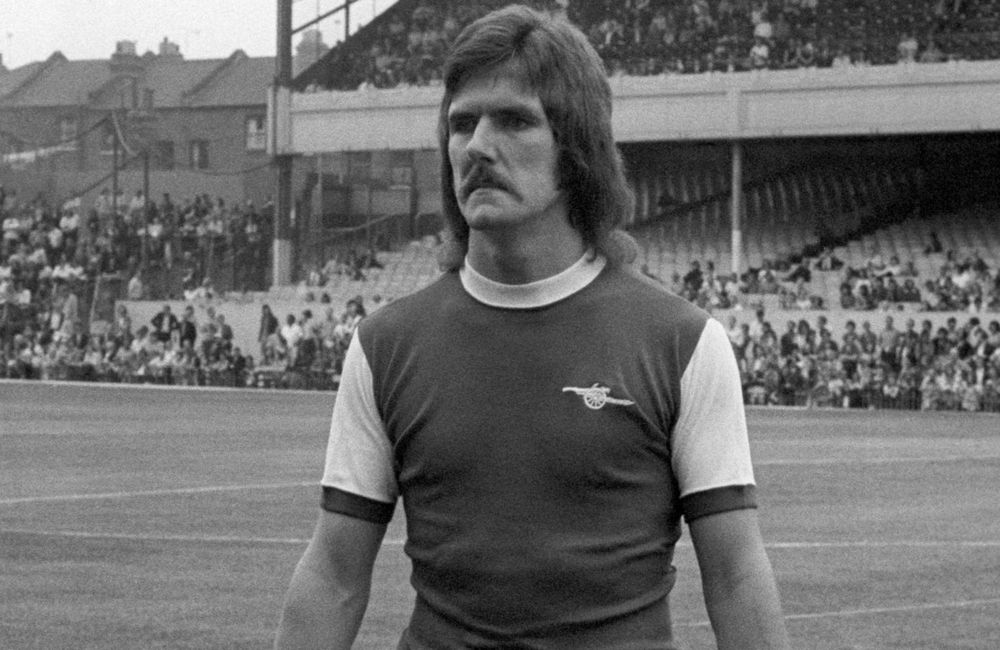
Peter Eastoe
Peter Eastoe
We start with one whose managerial career was a brief one.
Peter Eastoe started his career with Wolverhampton Wanderers in the late 1960s.
Unable to break into the first team at Molineux, the former England Youth international joined Swindon Town in March 1974 for a club record fee of £88,000 – after a successful loan spell which saw him average a goal every other game, including a brace on his debut.
Though Eastoe’s goals were not enough to maintain their Division Two status, in Division Three he notched 31 goals as Swindon challenged for promotion, elevating Eastoe to hero status at the County Ground.
The club ultimately fell short of promotion but Eastoe’s goals had alerted the attention of the bigger clubs.
He was signed by Queens Park Rangers in March 1976 for £100,000 with winger Don Rogers returning to Swindon as part of the deal.
He did not play in the remainder of that season, which saw QPR go close to winning the league championship but found himself in the team over the next three seasons.
He was transferred to Everton in March 1979 – shortly before Rangers dropped out of Division One – in a straight swop for Mickey Walsh.
After three full seasons at Goodison Park, he joined West Bromwich Albion in August 1982, where he had a full season in 1982/83.
Following this campaign, he was out of the club’s plans and spent periods on loan at Leicester City, Huddersfield Town, Walsall and back at Wolves, respectively.
In 1985 he played in the Portuguese league at SC Farense and Louletano DC and returned to England in January 1988 and signed for Southern League Premier Division side Atherstone United.
He had a spell as player-coach with Southern Midland Division outfit Bridgnorth Town for a season and a half before joining rivals Nuneaton Borough as assistant manager to the newly appointed John Barton.
His only spell as a manager in his own right came in September 1991 when he took charge of another Midland Division side, Alvechurch, but his stay was a short one as the Lye Meadow club were relegated to the West Midlands (Regional) League at the end of the season.
Elwyn Roberts
The former Corby Town, Bedford Town, Barnet and Kidderminster Harriers forward was highly regarded on the Southern League scene as a player.
He also had a spell `down under` with Sydney side Apia and had three spells with Corby, making over 500 appearances after being brought back from Barnet for £2,700.
He was appointed as the Steelmen`s player-manager in September 1989 and built a good squad which included the likes of Northern Ireland international Gerry McElhinney and ex-Liverpool and the Republic of Ireland star Mark Lawrenson.
But, having steered Corby to third place in the Southern Premier Division in 1992/93 he was appointed as boss of rivals Nuneaton Borough in May 1994.
Roberts though couldn`t prevent Boro making a rapid return to the Midland Division after finishing bottom.
His inability to get the club back into the Premier Division at the end of the 1994/95 season – they finished seventh - saw Roberts pay with his job in May 1995.
Brian Kenning
As a player, Kenning was a midfielder for Worcester City, Alvechurch, Sutton Coldfield Town and Bromsgrove Rovers.
His managerial career really started to blossom at Burton Albion in the Southern League Premier Division.
He was in charge at Eton Park between February 1992 and 1994.
He took over as manager of one of his former clubs, Conference side Bromsgrove Rovers, in the summer of 1994.
But he took over a club who had lost several high-profile players that summer, including attacking midfielder Steve Stott, keeper Alan Judge and striker Steve Taylor, who was sold to Crystal Palace for £90,000.
Kenning went on to coach at Stafford Rangers and in March 1999 was appointed manager of Gresley Rovers.
He took over from Gary Birtles towards the end of the 1998/99 season but was powerless to prevent relegation from the Southern Premier Division.
And he continued to struggle and was sacked in December 2000
Paul Holleran

He began his playing career as a scholar at Birmingham City and then turned out for Alvechurch and Solihull Borough before two knee operations brought early retirement and a move into coaching.
He was instrumental in setting up reserve and youth teams at Solihull Borough before taking his first managerial role at Kings Norton Town, taking them to runners-up spot in the Midland Alliance and a League Cup win before he worked alongside David Busst with the first team at Solihull, eventually taking over the manager’s role.
He can lay claim to helping two clubs to promotion in the same season, as he left Solihull for Halesowen Town late in the 2003/04 campaign, which saw both clubs win promotion.
The Yeltz won the Worcestershire Senior Cup and reached the First Round of the FA Cup under his stewardship.
He also managed Rushall Olympic, taking them to two play-off spots and the Fourth Qualifying Round of the FA Cup for the first time in their history.
He took over as manager of Leamington in November 2009, taking them to a play-off place in the Southern Premier Division in his first full season in charge (2010/11).
After a seventh-place finish in 2011/12, Holleran led the Brakes to the Southern Premier Division title in 2013, and with it promotion to Step 2 of the Pyramid in the Conference North.
And he guided the club to a respectable 13th position, but the following season saw him suffer his first rea, set-back as a manager as Leamington were relegated back to the Southern League, but came incredibly close to bouncing straight back up in 2015/16 with defeat by Hungerford Town in the play-off final.
This experience drove the team on, and twelve months later a return to what had now become the National League North was secured through the play-offs with a 2-1 victory over Hitchin Town.
The Birmingham Senior Cup was also added to the trophy cabinet for the first time in 45 years.
Since then, Holleran has worked wonders, steering the Brakes to final day safety in 2017/18 and another 13th place finish in 2019, along with a second Birmingham Senior Cup win in three years.
Last season Brakes were clear of relegation danger when the season came to a premature end due to the COVID-19 pandemic.
Steve Daley

Steve Daley was briefly the most expensive player in British football when he joined Manchester City from Wolverhampton Wanderers in 1979 for £1,437,500.
He had made 212 appearances for Wolves and scored 38 goals, but it`s fair to say the size of the fee weighed heavily on his shoulders, and he was not helped by City being a struggling team at the time.
Just a year after being signed for that whopping fee, he was sold to Seattle Sounders of the North American Soccer League for just £300,000!
He had brief returns to English football with Burnley and Walsall in between his stints in the States with Seattle and then San Diego Sockers and had a season and a half with Kettering Town in the Conference.
Most thought he`d just turn up and take his money, but he was, in fact, excellent for the Poppies for a couple of seasons and worked and played really well in a basically struggling side at the time.
His first taste of management came with Southern Premier Division Bromsgrove Rovers in February 1998, where he succeeded Brian Kenning, but surprisingly quit the following August.
He returned later the same season but was unable to prevent their relegation from the Premier Division.
The club continued to struggle amid financial problems that almost forced its closure.
Daley and his assistant, former Wolves team-mate, goalkeeper Phil Parkes, offered to work without wages for as the club fought successfully to fend off a winding-up order from the Inland Revenue before he resigned in the summer of 2000.
In 2001/02, Daley returned to management in the Southern Midland Division with Bilston Town.
However, after finishing 17th, he finished with football altogether and went into the pub trade and, more recently, the after-dinner speaking scene.
Brian Chambers

Brian Chambers was a silky-skilled midfielder who made 70 appearances for Sunderland.
He scored 7 goals in his Sunderland first-team appearances and left the club in 1973 - the week after the FA Cup Final - in a £30,000 transfer to Arsenal.
Bizarrely having been the sub for Sunderland in the semi-final against Arsenal in 1973, he went on to play for Arsenal in the 3rd/4th place losing semi-finalist game.
Chambers also earned 7 England Schoolboy caps in 1965 and moved to Luton Town for £30,000, then Millwall for £25,000 and onto Bournemouth and Halifax Town, for whom he played his last League game in May 1981, scoring the only goal of the game.
He made 251 appearances and scored 31 goals throughout his League career.
After spells with Salisbury and Dorchester Town as a player, Chambers led Swanage & Herston to runners-up spot in the Wessex League as player-manager.
That earned him a shot at managing neighbouring Poole Town in the Southern Premier Division at the start of the 1991/92 season.
But, although he was still a class act on the pitch, he joined a Dolphins outfit who were struggling financially and although he brought in some decent players within the budget he was allowed, he couldn`t prevent them from being relegated as they finished third-from-bottom of the Premier Division table.
He was succeeded a year later by former Bournemouth and West Ham defender Keith Miller.

Most clubs are looking for volunteers. Find out more on the button below:
www.PitchingInVolunteers.co.ukAll the news and results in one place.
REGISTER